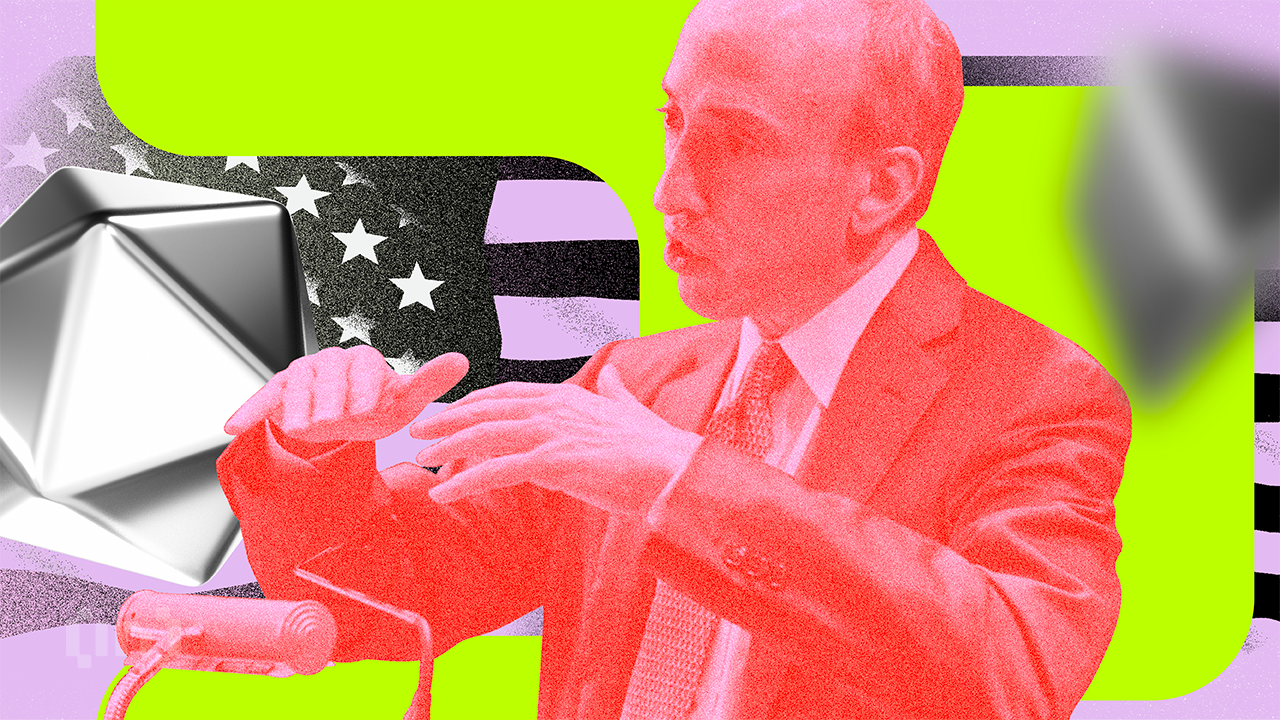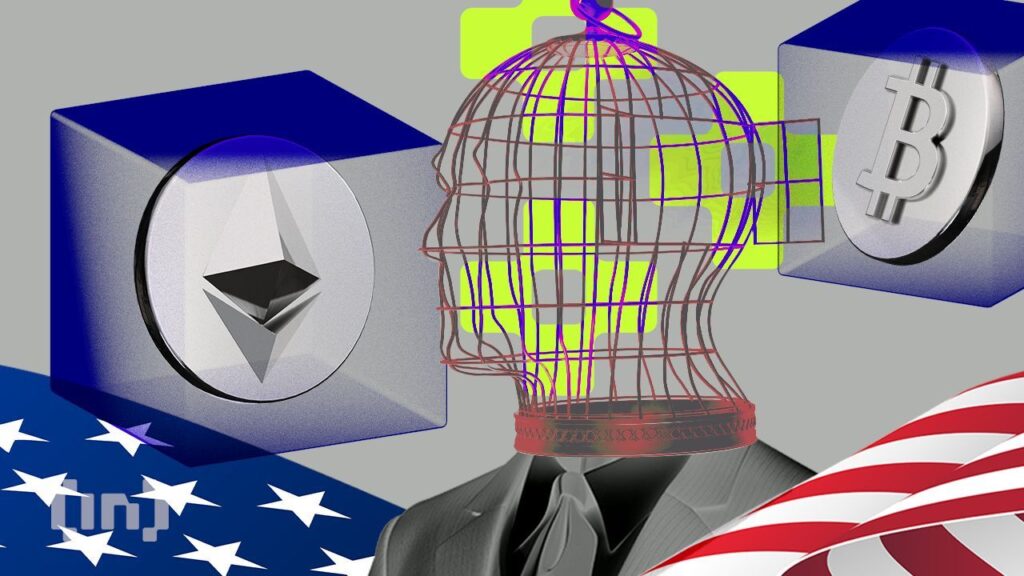As President-elect Donald Trump prepares to take the White House next year, expectations for David Sacks’ role as America’s crypto czar are growing in the cryptocurrency industry.
In a conversation with BeInCrypto, industry leaders Ryan Chow of Solv Protocol and Kadan Stadelmann of Komodo expressed optimism over Sacks’ appointment, expecting favorable changes towards a more industry-friendly regulatory environment .
Crypto Industry Passes Layoff Appointment
Earlier this month, Trump named Sacks, a seasoned entrepreneur and investor with more than two decades of experience in Silicon Valley, as the White House’s cryptocurrency and AI czar.
Sacks brings extensive experience to this role, having been founding COO of PayPal and a member of the PayPal Mafia. He then founded Yammer, an enterprise software platform that Microsoft later acquired for $1.2 billion.
The crypto community has high expectations of Sacks and expects him to guide the development of a unified national approach to policymaking and position the United States as a leader in emerging technologies.
“Sacks should advocate for clearer guidelines that would benefit blockchain companies, potentially reducing compliance burdens and encouraging investments in digital assets,” Brian Chow, CEO of Solv Protocol, told BeInCrypto.
As an early and strong supporter of cryptocurrency, Sacks endorsed Trump’s efforts to engage with industry leaders. After his appointment, he expressed enthusiasm in an X position about the opportunity to advance American competitiveness in emerging technologies.
“One of Sacks’ primary responsibilities will be to establish a legal framework for cryptocurrency that brings much-needed clarity to an industry often plagued by regulatory uncertainty. His appointment could indicate that the Trump administration aims to implement business-friendly regulations that could foster innovation in the blockchain sector. This aligns with Trump’s campaign promises to position the United States as a leader in technology and cryptocurrency,” Chow added.
Given his long-standing enthusiasm for cryptocurrencies, Sacks now has the opportunity to influence the development of industry-friendly regulations.
Dismantling Gary Gensler’s ‘overly aggressive’ regulations
The new “crypto czar” is also known in part for his virulent contempt for current Securities and Exchange Commission (SEC) Chairman Gary Gensler’s regulatory approach to digital assets.
Under Gensler’s leadership, the SEC has taken an aggressive regulatory approach, targeting major crypto companies and exchanges. While intended to protect investors, these actions generated friction within the industry, with stakeholders saying they hindered innovation and created regulatory uncertainty.
The United States currently lags behind countries like the United Arab Emirates and Singapore in establishing clear regulatory frameworks for the cryptocurrency sector.

According to Chow, as Trump’s crypto czar, Sacks can effectively influence the development of clear regulatory guidelines for digital assets.
“Sacks should advocate for clearer guidelines that would benefit blockchain companies, potentially reducing compliance burdens and encouraging investments in digital assets,” Chow explained.
Sacks is now tasked with deciding whether the United States will be a leader in blockchain innovation or risks creating more regulatory uncertainty within the crypto industry.
An undefined role
Although Sacks promises a crypto agenda, the responsibilities of a “crypto czar” remain unclear.
“The ambiguity surrounding Sacks’ role — being part-time and not requiring Senate confirmation — raises questions about his ability to implement meaningful policy change,” Chow said.
Despite this ambiguity, Trump’s appointment of pro-crypto figures to key positions in his current administration will more easily foster a regulatory environment conducive to digital innovation.
“The choice of Sacks, alongside Paul Atkins as SEC chairman, indicates a move away from the enforcement-heavy policies seen under the Biden administration,” Chow noted.
In addition to Atkins, Trump chose Stephen Miran, a former Treasury official during his first administration, to chair the Council of Economic Advisers (CEA). As its name suggests, the Council serves as an advisory body to the President on economic matters.
Miran is a staunch cryptocurrency advocate who has previously called for regulatory reforms in the United States. As CEA president, he will analyze economic trends, develop economic growth strategies, and evaluate the effectiveness of existing policies.
Meanwhile, Trump named former congressional candidate Bo Hines as executive director of the President’s Council of Advisors on Digital Assets. Hines will work with Sacks to develop a regulatory framework that balances innovation and consumer protection. Nonetheless, the crypto industry expects Sacks to benefit from the decision-making.
“While Sacks’ role is advisory and part-time, his close relationship with Trump allows him to influence key policy decisions affecting both AI and cryptocurrencies,” Chow added.
The extent of the influence of bags
In a conversation with BeInCrypto, Kadan Stadelmann, CTO of the Komodo platform, said that ultimately Trump himself would be able to wield the most power over crypto policies.
“By giving his blessing to the crypto industry, Donald Trump himself can do a lot to help the United States catch up with countries where regulatory clarity is already the order of the day. Sacks can certainly advise, and perhaps help influence other branches of government to align with the president’s vision,” Stadelmann said.
Although Sacks is a good addition, his appointment is not essential to crafting the regulations, according to Stadelmann.
“Donald Trump’s re-election could encourage businesses to return to the United States, especially as he promises a 15 percent corporate tax rate. Sacks’ appointment is an afterthought,” he added.
The crypto industry will experience various policy changes alongside the appointment of a new SEC chairman. This includes executive orders that would facilitate greater access to banking services for crypto companies, the appointment of crypto-friendly individuals to key government positions, and even the creation of a possible strategic Bitcoin reserve.
Uncertainty about CBDCs
The conversation around a more customer-friendly approach to digital assets also leads to the topic of central bank digital currencies (CBDCs). Central banks issue and regulate CBDCs, which are forms of digital currency. Unlike cryptocurrencies, CBDCs are intended to coexist with physical currency, rather than replacing it.
Recognizing the digitalization of money and payments, central banks around the world are increasingly exploring the development of CBDCs to ensure their continued relevance in an evolving virtual financial world.
“While Sacks is not explicitly tasked with developing a CBDC, his influence on crypto policy could shape discussions around it. A CBDC could be seen as a government response to the rise of private digital currencies, potentially leading to increased oversight and regulation of these assets,” Chow told BeInCrypto.
Given that the Trump administration must comply with a long list of crypto-friendly policies, CBDCs may not be in the lead.
“Sacks’ preference for deregulation could slow or complicate any move to establish a CBDC, as he could prioritize improving the existing crypto ecosystem over introducing government alternatives,” a added Chow.
How much control Sacks has over the creation of a U.S.-backed digital currency remains a question.
“Critics say its ability to influence major decisions regarding CBDCs or private cryptocurrencies could be limited without formal authority or oversight. It is likely that CBDC will be brought up during his tenure, but ultimately, well-regulated digital assets might still be the preferred choice,” Chow said.
That Trump wants to create a digital dollar is another hurdle for hopeful CBDC enthusiasts. In January, Trump gave a speech in New Hampshire in which he promised that as president he would “never authorize the creation of a central bank digital currency,” calling it “very dangerous” and form of “governmental tyranny”.
Only time will tell if Trump’s position will remain the same.
Disclaimer
In accordance with Trust Project guidelines, this feature article presents the opinions and views of industry experts and individuals. BeInCrypto is dedicated to transparent reporting, but the views expressed in this article do not necessarily reflect those of BeInCrypto or its staff. Readers should verify the information independently and consult a professional before making any decisions based on this content. Please note that our Terms and Conditions, Privacy Policy and Disclaimer have been updated.




